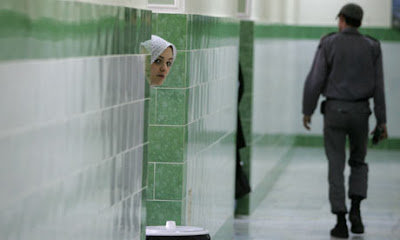
“SOMETHING OF THE NIGHT “ABOUT HIM
In the seventh decade of his life, now Khamenei faces the biggest challenge since he took over the Supreme Leader’s office. After giving the notorious sermon on 19th of June, when he directly blamed the foreign powers for conspiring against the Islamic regime now he demonstrated a U-turn in his latest speech. He admitted that there is no proof that the opposition leaders blamed for the post-election unrest were agents of the foreign powers. While a number of senior opposition figures (including the employee of the British Embassy in Tehran) are currently on trial accused of conspiring with foreign powers, this speech not only contradicts his previous sermon but dismisses one of the most important charges against the defendants. His latest speech clearly is an intervention in an already tainted judicial process as well as an unsuccessful attempt to reduce the tension. The move was also seen as a partial retreat against wave of criticisms from the senior clerics in Iran. The speech was made the day after the forth session of the show trial which was planned to intimidate the opposition as well as stabilizing the post-election turmoil. However, neither the trial nor the speech is the solution to the Supreme Leader’s problem.

Since January 2007 when Khamenei had not been seen in public for some weeks, his health as well as his potential successor has been called into question. Khamenei has six children. His second son, Mojtaba Khamenei is reported to be his father’s choice to succeed him as the Supreme Leader. Mojtabe, however, lacks the religious and political stature to overcome the opposition from the senior clerics in the Assembly of Experts. Having said that, the ultra-conservative young Khamenei operates tucked behind an elaborate security structure. These brutal forces include Iran’s Revolutionary Guard corps, plain clothes security servicemen and Basiji militiamen. This combination gives Mojtaba an immense power to eradicate any form of opposition. In fact, Mojtaba played a leading role in orchestrating Ahmadinejad’s disputed election victory on 12th of June and also led the backlash against protesters by using his own secret army. The young reclusive cleric has by no means been far from the controversy. Mojtaba is widely believed to control huge financial assets inside and outside of Iran. On 18th of June (only six days after the election) the British government, in accordance with UN and EU sanctions, froze nearly £1bn in Iranian assets. Although Mojtaba’s name does not appear on the Treasury’s list of targets of those sanctions, but one British official said the Supreme Leader’s son may operate through state-run enterprises that are listed. “I would be amazed if some of the money was not his,” the official said.
Having won the presidential election, the axis of Khamenei, Ahmadinejad, Mojtaba are in a quandary how to stabilize the country. The followings are some of the reasons which may have forced the Supreme Leader to prepare the public opinion for another stratagem:
a) The Supreme Leader has lost his reputation as an impartial leader because of endorsing the disputed results of the election. Therefore he desperately needs to regain his unbiased position in order to be able to reduce the tension.
b) The crackdown on the protestors by Mojtaba and his security servicemen proved to be only partially successful. The situation has become even worse since the revelation about the torture, rape and killing of the young detainees inside the prison.
c) The tension between Ahmadinejad and the parliament is going to be heightened if cabinet nominees are given a vote of no confidence which in turn would compound the existing problems.
d) The show trial did neither prepare the ground to arrest the main leaders of the opposition nor intimidated the general public. Therefore, people are looking for an opportunity to demonstrate their anger against the regime. Any religious or national event is a potential threat to galvanize the demonstrators to take to the streets.
Giving the content of Khamenei’s latest speech it seems that the Supreme Leader and his prince of darkness may have reached this conclusion that now it is the time to have a strategic retreat.
For while the tale of how we suffer and what we would have to sacrifice and how we may triumph, is the only tale which must be heard. There is not any other story to tell. When the powers of darkness are aligned against us, it is our light, not their darkness which is more frightening.
Shahin M











